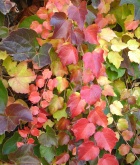0004 Chloe's Stories Poem by Lori Boulard
0004 Chloe's Stories
She went straight for adventures
the minute she could read,
unlike her mother
who sought the solace of brave
little mice and Briar Woods
well into her teens.
Surprising, sometimes,
how she takes it in stride -
wartime famine and Black
Death, nature's blunt brutality
("did you know that Charlotte dies
after having her babies? That's
how it is for spiders") - following
her heroes into darkness,
braving thieves and wild boar
as they settle the West in a quiet
corner of her room after dinner.
She still prefers the company
of Women Who Dared and
Men Who Made History,
still believes she can conquer
every curve of the world
with little more than a meal
of dried meat and stale bread,
a sack and a compass,
and a notebook for letters home
so her brother doesn't worry.
Lori...again, I'm taken with the natural flow of your words, which never seem stained. They are filled with confidence. When I first read this and thought about it, the first thing that suggested itself was changing 'brother' to 'mother, ' but I can't say yet whether one works better than the other. 'Mother, ' draws the narrator into the last line, but maybe that's too much. 'Brother' is cute, while 'mother' carries a heavier load. Just a thought. Take care, John
This poem has not been translated into any other language yet.
I would like to translate this poem
Wonderful, Lori. Your work flows like music, like water over slick stones. And I prefer 'unlike me'. Again that word, but it just...flows. Poetry is not expected to abide so strictly by rules of grammar. Better that it should sing, Don